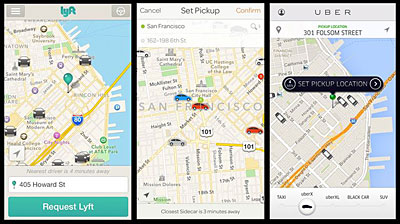Future Now
The IFTF Blog
Innovation Is Happening Faster Than We Can Adapt
![]() Marina's response to the question, "Is Silicon Valley Saving the World or Just Making Money?" Reposted from The New York Times.
Marina's response to the question, "Is Silicon Valley Saving the World or Just Making Money?" Reposted from The New York Times.
The changes coming out of Silicon Valley are fundamentally transforming our institutional, social and cultural norms and practices. Airbnb, Twitter, Uber and countless other new technologies put the world at our fingertips and help us coordinate activities at previously unimaginable speeds and scale.  Myriad on-demand platforms are enabling new levels of convenience and flexibility, and at the same time, they are undermining well-established notions of work and employment.
Myriad on-demand platforms are enabling new levels of convenience and flexibility, and at the same time, they are undermining well-established notions of work and employment.
These technologies are emerging faster than our institutional capacity to adapt to them. In only six years of operation, Uber has upended the taxi industry in every city where it operates. Airbnb is more highly valued than the Hyatt and Wyndham combined! In the meantime, we are just beginning a conversation about whether Uber or Lyft drivers are employees or contractors, and more generally, how to treat a growing army of on-demand workers. And we’ve only reached the tip of the iceberg when it comes to how the sharing economy affects new markets, rental rates, cost-of-living and long-term quality of life.
Therein lies the frontier. And we will need dynamic thinkers and policymakers to balance established needs with this growth.
Silicon Valley entrepreneurs mostly view cultural, institutional, governance and even dating issues as technology challenges waiting to be solved. But the challenge and promise of a new future must be addressed holistically. The creations coming out of Silicon Valley in the form of apps, devices and software platforms are not so much facilitating a “race against the machines,” but a race against our own social institutions, values and practices, and that is the future.
Image Credit: "Proposed CPUC regulations improve consumer protection for Uber, Lyft and Sidecar" by Flickr User CA Department of Insurance



